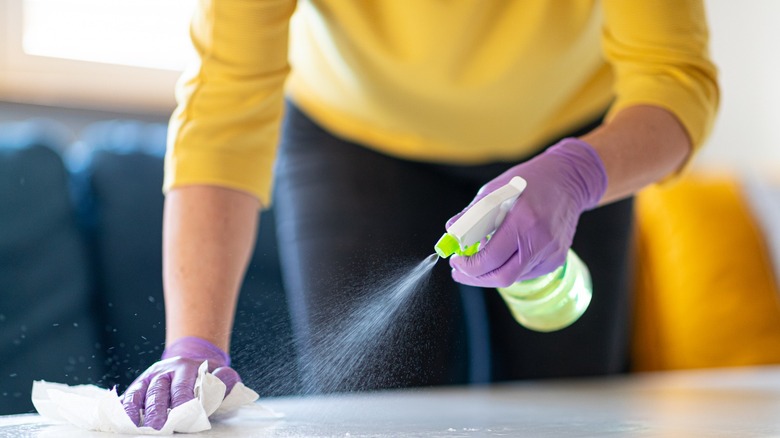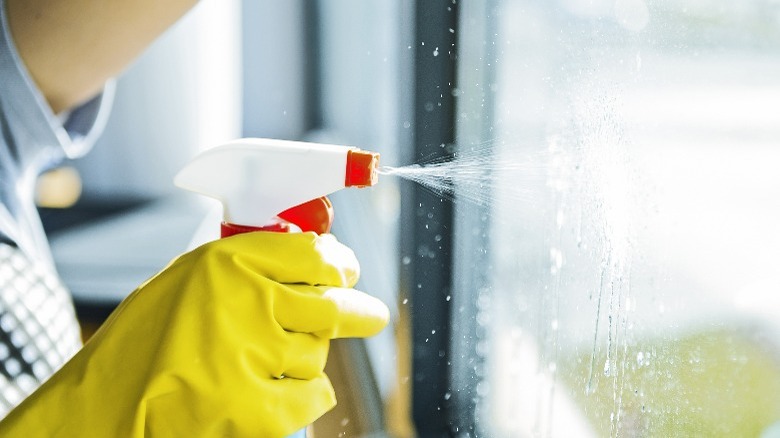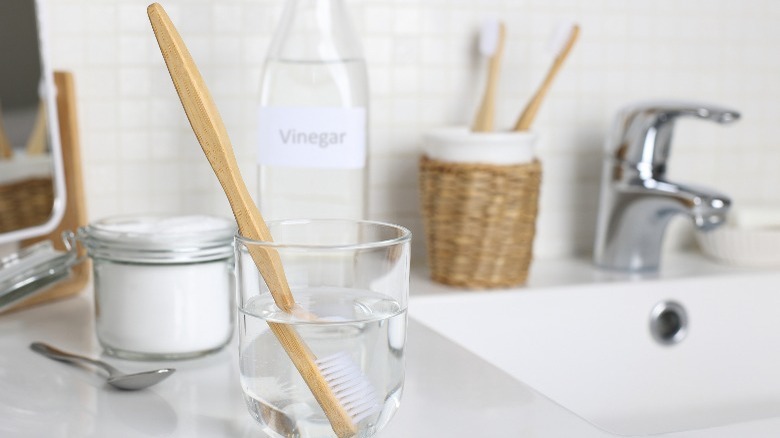Mixing Vinegar And Ammonia For Cleaning: Good Or Bad Idea?
With growing concerns over the hazardous chemical cleaners available in the market, many people are turning to their pantries for DIY cleaning solutions. Among these, ammonia and vinegar are popular choices for household cleaning tasks. You might have considered combining these two trusted agents, hoping to create a more potent cleaning solution for a particularly challenging situation. However, given the numerous warnings about mixing household cleaners, it's wise to question the safety and efficacy of blending vinegar and ammonia. The straightforward answer? It's not a great idea, but not because it's dangerous — rather, it diminishes their individual cleaning strengths.
Here's the science behind it: Ammonia is a weak base and vinegar is a weak acid. When these two are mixed, they neutralize each other, canceling each other out and creating a saltwater solution. The neutralization process significantly reduces the cleaning power of the solution compared to using ammonia and vinegar separately. So, while the idea might seem good in theory, in practice, it's less effective for cleaning tasks.
When to use ammonia and vinegar
Vinegar and ammonia are both great cleaning agents; however, each is more effective as a separate cleaning agent rather than combined. If you're asking which one is better to use, it depends on what you're aiming to clean. Vinegar is particularly good at removing hard water deposits, rust stains, and tarnishes from copper and brass. It's also a great disinfectant. Meanwhile, ammonia is often added to household cleaners for its degreasing action and is often used to clean glass and other surfaces like stainless steel and porcelain. But if you have to choose, many choose vinegar over ammonia as a cleaning agent because it has fewer potential hazards.
As mentioned above, the two tend to neutralize each other. That being said, many people use vinegar to neutralize ammonia odors, such as those from pet urine or sweat-soaked workout clothes. Simply fill a spray bottle with undiluted white vinegar and apply it directly to the affected fabric or carpet. For ammonia-smelling clothes, add a cup of white vinegar directly to the washing machine along with the garments. Let them soak for at least 20 minutes before running the wash cycle.
What to mix with vinegar or ammonia instead
If you're dealing with a tough mess and really need a more potent cleaner, you can boost the cleaning power of vinegar or ammonia by adding other ingredients.
For vinegar, a classic combination is with baking soda. This duo works because the acid in the vinegar reacts with baking soda, releasing carbon dioxide gas that helps lift dirt from surfaces. It's crucial, however, not to mix them in equal parts; maintaining an acidic or basic mixture rather than a neutral one is key. For instance, mixing two parts vinegar with one part baking soda can fizz up effectively, making it great for cleaning drains. Additionally, using vinegar and then using a paste made from baking soda and water for residual stains is an incredible hack that removes hard water stains more easily than ever.
There are many ways to use ammonia in the home as a standalone cleaning agent. Often, just mixing ammonia with water creates a versatile cleaning solution. A mixture of a few drops of ammonia with some liquid dishwashing soap can be remarkably effective for tackling cloth stains, especially those from oil-based foods.


